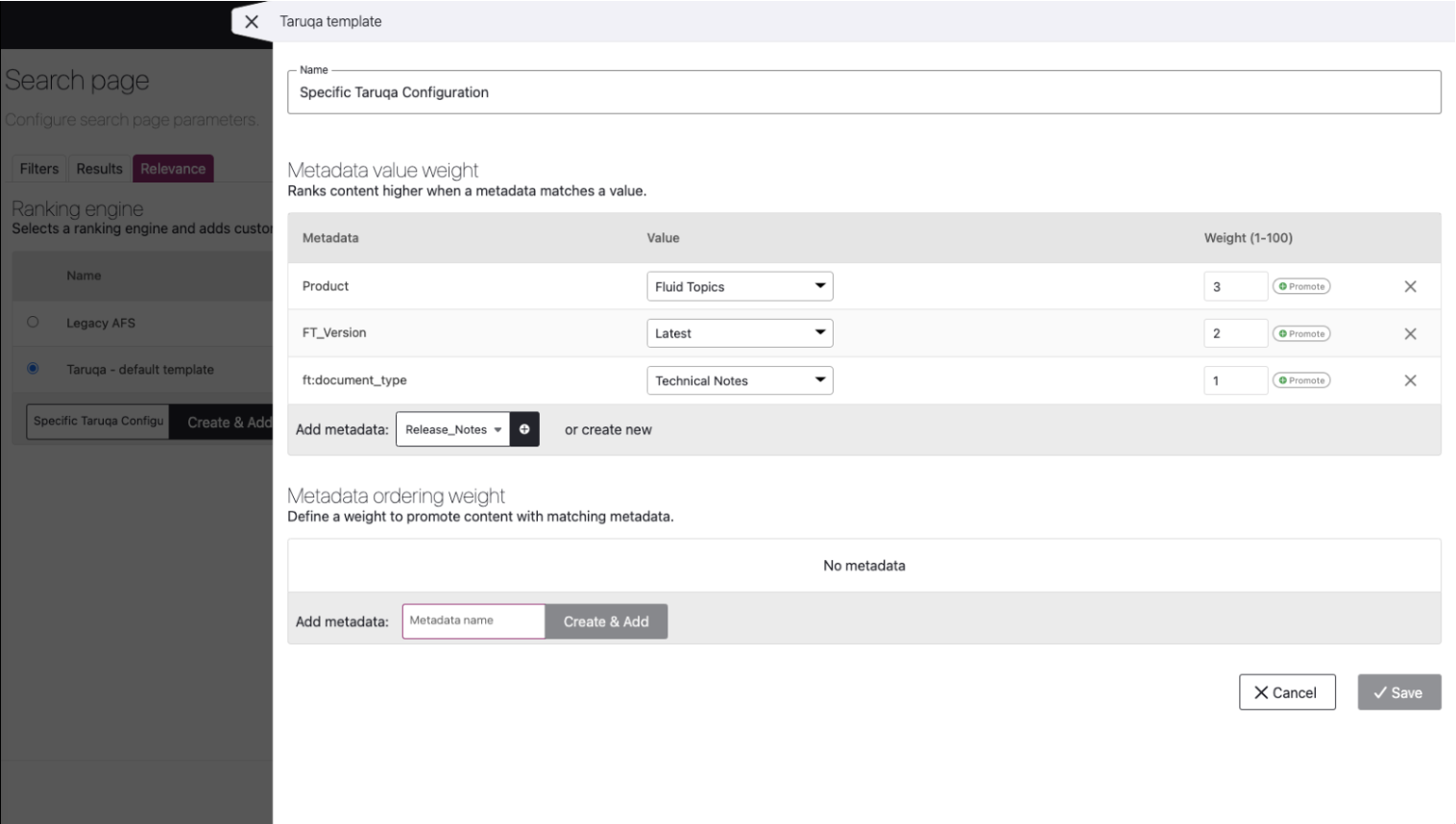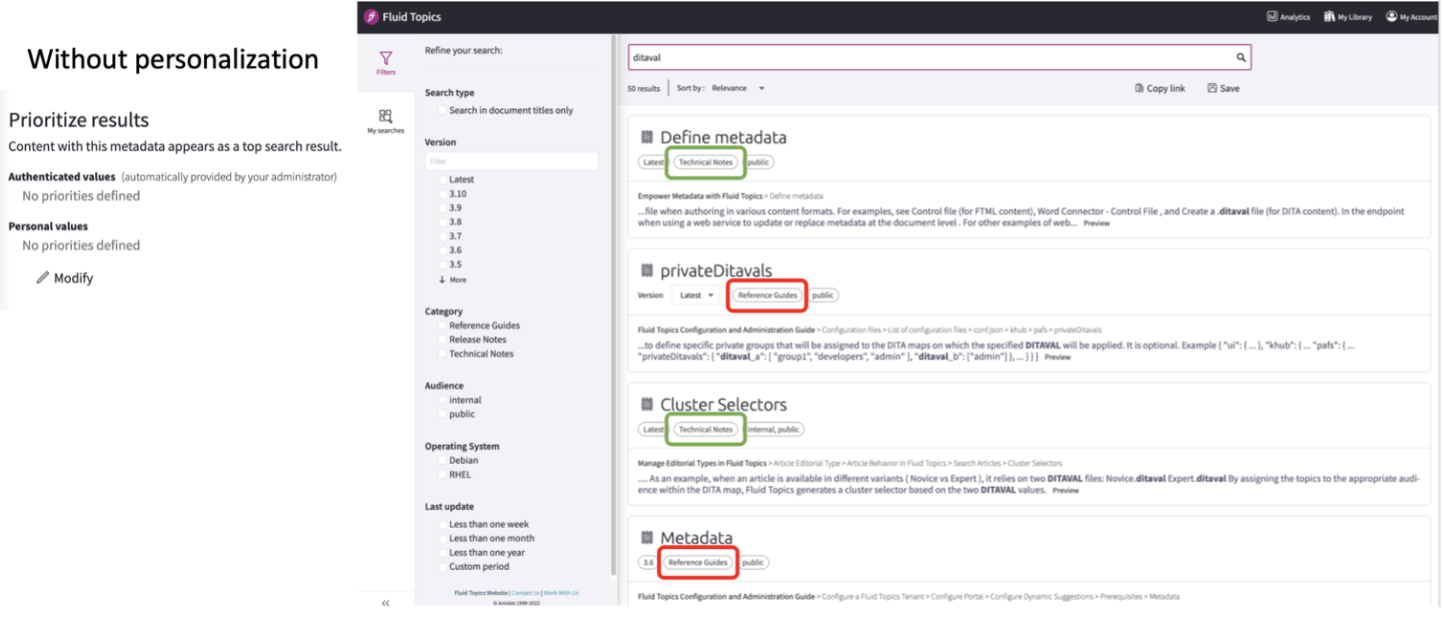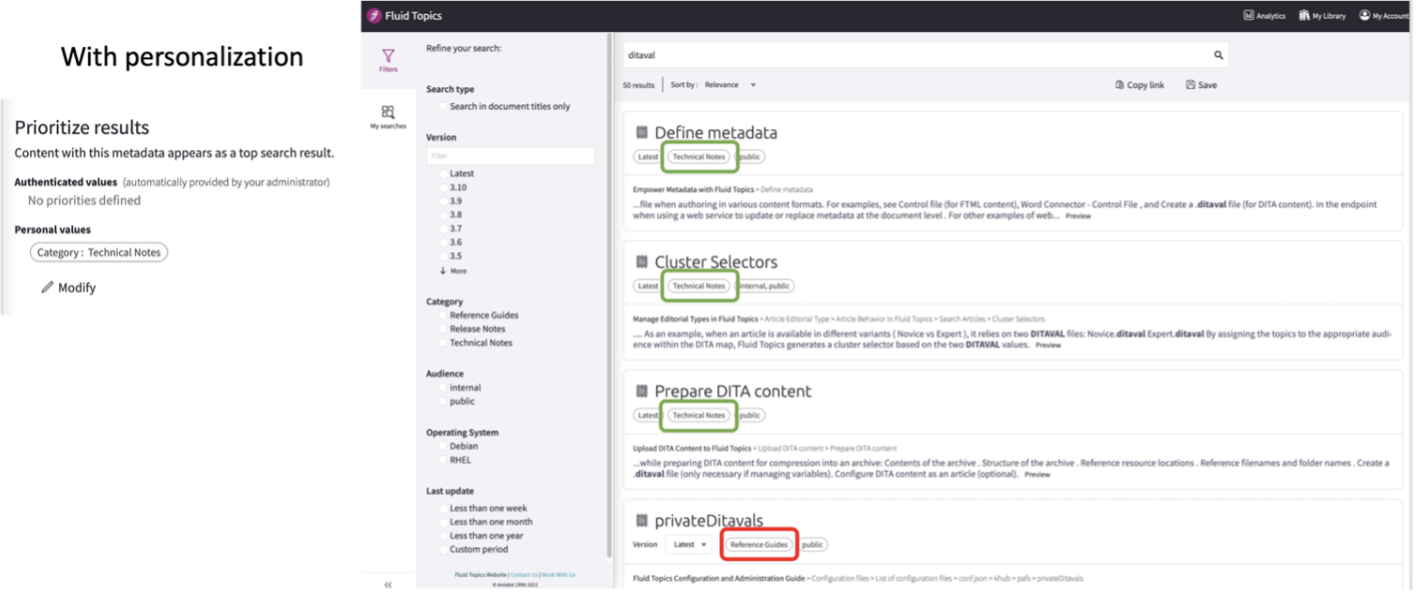As customers, we search for things daily. Companies like Google and Amazon have changed our expectations of what search should be. Whether we are searching for a new phone or information about why something’s not working on our computer, we want to get the right answer right away without having to scroll to the bottom of the list to find it.
As professionals, we spend 50% of our time searching for information, and on average, it takes 18 minutes to locate each document. So as a company, it doesn’t matter if you’ve got a sharp-looking website or intranet if it takes your employees 18 minutes to find relevant results. What you really want is for your team to get findable, reliable, and up-to-date information.
This is even more critical for your documentation as no company can afford to leave their teams and users in the dark when they urgently need product answers to solve an issue.
As a leading information access specialist, we have leveraged 20 years of advanced research in semantic search and content enrichment to develop Taruqa, our proprietary intelligent search engine.
In this article, you will learn more about our next-generation search engine and its business applications for technical and product content.
Taruqa in a Nutshell
Taruqa is our proprietary AI-driven search technology powered by the most performing relevance ranking algorithm on the market. In simple terms, Taruqa provides superior relevance out of the box and supercharges it with unique customization and personalization capabilities.
Taruqa powers Fluid Topics’ Content Delivery Platform to provide the greatest search and find experience to your users, no matter the volume, complexity and diversity of your technical documentation.
1. Superior relevance by default
Taruqa introduces a linguistic relevance model based on sophisticated language modeling and probabilistic techniques, that delivers natively the most relevant results to a user whatever the query. Here is how it stand out from the most popular enterprise search engines:
- Searching for information, not words
The TF-IDF ranking schemes – which are still at the core of Lucene, the search library of SolR, ElasticSearch and more – care about word density. Taruqa goes far beyond and integrates any type of metadata in the ranking model. Taruqa does not only take word density into account, but it also applies a consistent model to all types of items: textual terms, numbers, quantities, dates, and more.
Our search engine can analyze document freshness and can relate and compare “twenty feet” and “1 kilometer”, but also “July 4, 2020” and “today” or “datasheets” and “technical notes”, and includes all of these in the ranking, for a higher relevance of results.
- Without programming and on the fly
Equally important, it does it dynamically and automatically. Some allegedly state-of-the-art search engines allow the addition of several parameters to the search, but it all has to be done manually, which means having to program, test, tune, and constantly maintain the way the search engine behaves.
Taruqa integrates new parameters on the fly (no re-indexing needed) and optimizes the ranking through its AI technology. As a result, Taruqa has a superior relevance out of the box, and scores 25% better than the most popular search engines on the market.

2. Customized to your business rules
Taruqa provides by default the most relevant answers for a given query. But as a product or documentation owner, you may want to promote specific content according to your business rules.
For instance, if 80% of your activity relates to your latest product line, you may assume that most queries will be related to it, even if the user doesn’t mention it in her search. You don’t want to hide or filter out the content for older product lines but only rank higher the results that are more likely to be of interest, given the current profile of your business.
Taruqa allows you to add your own ranking parameters and apply them to your documentation as a global business rule. Our search engine lets you configure any metadata you want to use in the ranking through the administration interface and without any programming knowledge.
This way, search results are not only extremely relevant to the query but also customized for the specificities of your own activity, products, or documentation.

3. Personalized to the user
Our customers expected nothing less than the Google search experience when it comes to their documentation. And the ultimate benefit of the golden standard of search is personalized search results.
Taruqa has two ways to increase relevance through personalization, ways that can be combined for better results. First of all, the personalized search results are based on dynamically provided user preferences: these are the preferences and choices stored at the user profile level in our solution Fluid Topics, or retrieved from SSO or any CRM or database. Secondly, they stem from user behavior thanks to detailed analytics, thus improving relevance over time and usage.
Business Applications
Now, how does Taruqa improve the experience with your documentation? Here are three use cases you can project on your own business case.
Editorial line definition
You want to ensure that your users see what makes sense for your brand, your products and your company. Taruqa is not limited to just hiding or filtering out results, it can also rank first what you think is most aligned with your activity.
- You’ve released a new version of your product and the latest release note is a must-read? Make sure it shows first, while older user guides on the same topic appear lower in the list.
- You’ve just created a series of great support videos for your product and still have the traditional maintenance guides online for further reference? Rank “videos” and “content freshness” first.
Search result personalization per user profile
You probably have a great diversity of users and even more content types.
What if you could positively influence the search results to ensure your field service engineers had access to the troubleshooting guides or technical notes before the product datasheets?
With Taruqa, you can avoid making them browse through an endless search result page by setting specific user groups or profiles preferences and guaranteeing they get the most relevant results the moment they need it.
In the example below, we’ve prioritized the results for the Technical Notes category. With no user preferences, here is the ranking:


Obviously, field service personnels can still get access to the product datasheet, it will just show lower in the list so that they can find what they likely need most first.
This set up is possible at the user group level and is managed by the administrator of the Content Delivery Platform within your company. However, the user has the possibility to refine her preferences at her own user level: a field technician who spends 80% of her time on a specific model of a machine could set up this product as her preferred results.
Search result personalization for non-authenticated users
Quite often, enterprise knowledge centers have been designed with only authenticated users in mind but in recent years, many of our customers have begun creating digital and personalized content experiences for potential customers wishing to investigate their product before purchase.
One of our customers had essentially non-authenticated users. He wanted to provide each visitor with informational yet contextual resources consistent with identified user scenarios.
As a result, he created 7 different personas visitors can choose from. Based on this choice, the documentation search guides the user to the most relevant answers to her product questions, without needing further identification.

Make Every Search Experience Relevant
Growing customer expectations makes offering a next-generation search experience a must have. The current open-source solutions have not yet managed to provide the right relevance and deliver contextual and personalized responses. As Lucene admits in its own documentation, “In a nutshell, scoring works. At least, that is, until it doesn’t work, or doesn’t work as one would expect it to work.”
Search makes a particularly dramatic difference for businesses that manage large corpuses of documents. Resulting from more than 6 years of fundamental research and R&D, our new search engine is a real revolution.
If you want to learn more about Taruqa, get in touch!
Latest post





